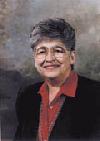

Inducted in 1999
Thelma Estrin passed away in February 2014 at 89. She was a pioneer in biomedical engineering. Her work combined concepts of anatomy, physiology, and neuroscience with electronic technology and electrical engineering. She was one of the first people to use computer technology to solve problems in healthcare and medical research. Thelma designed the first system for analog-digital conversion of electrical activity from the nervous system.
In the late 70s, Thelma was the first woman to join the board of trustees of the Aerospace Corporation, and her leadership on that board encouraged many women to pursue careers in aerospace engineering.
In 1954, Thelma helped design Israel’s first computer, the Weizmann Automatic Computer.
Thelma was the director of the data processing laboratory at the Brain Research Institute at UCLA, and she published 50 technical papers on the use of computer technology in the healthcare field. She served as president of the IEEE in Medicine and Biology Society and was the first woman elected to national office as vice president of IEEE. She also edited an issue of "IEEE Computer."
Her honors include a Fulbright fellowship at the Weizmann Institute in Israel to investigate electroencephalogram patterns associated with epilepsy; the Outstanding Engineer of the Year Award from the California Institute for the Advancement of Engineering; the Achievement Award from the Society of Women Engineers; the IEEE Haraden Pratt Award; and the Superior Accomplishment Award from the National Science Foundation.
She was a founding fellow of the American Institute for Medical and Biological Engineering.
In 1989, Thelma was awarded an honorary doctor of science from her alma mater, for which a citation reads: